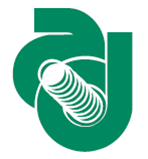Speaker
Dr
Claudio Piemonte
(Fondazione Bruno Kessler)
Description
In the framework of the HyperImage and Sublima EU projects we are developing a SiPM-based high-performance TOF-PET system to be integrated in a MRI. It has already been shown that single-element FBK SiPMs coupled to LYSO scintillator and read out by an optimized discrete circuit provide excellent energy and timing information. In this paper we demonstrate that a very good performance can be reached also in a system-like configuration. The new set-up is based on the PETA3 read-out ASIC, developed by the University of Heidelberg. The interconnection scheme (ASIC board and connectors to sensor) is identical to the one used in the PET module developed for the above-mentioned projects. The system performance is evaluated by measuring the energy resolution and the coincidence resolving time (CRT) of two single SiPMs coupled to LYSO crystals and read out by two channels of the ASIC. As an example, using two scintillator detectors, composed of a 3x3x15 mm$^3$ LYSO crystal coupled to a 3x3 mm$^2$ SiPM, a CRT of 250 ps FWHM can be obtained. The best value we measured with the optimized discrete read-out configuration was 220 ps.
Details about the set-up as well as the results will be given at the conference.
Author
Dr
Alessandro Tarolli
(Fondazione Bruno Kessler)
Co-authors
Dr
Alberto Gola
(Fondazione Bruno Kessler)
Dr
Claudio Piemonte
(Fondazione Bruno Kessler)
Dr
Michael Ritzert
(Universität Heidelberg)
Prof.
Peter Fischer
(Universität Heidelberg)
Dr
Torsten Solf
(Philips GmbH)
Dr
Volkmar Schulz
(Philips Research Aachen)

